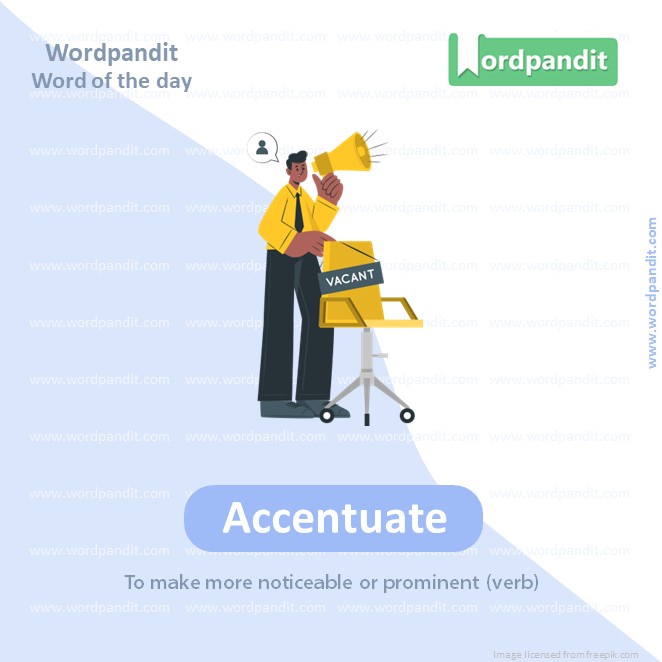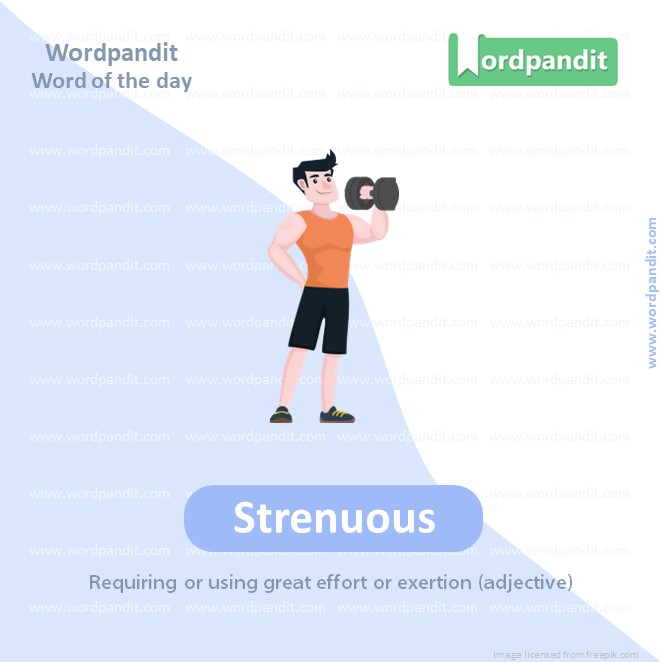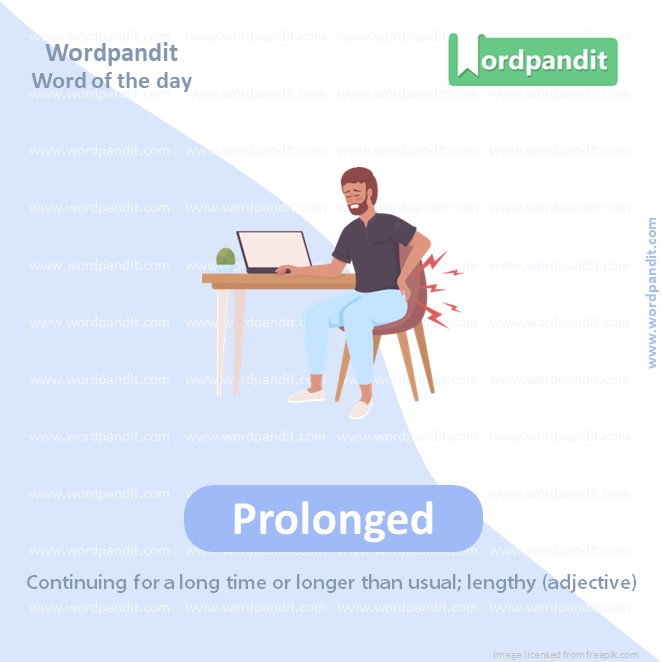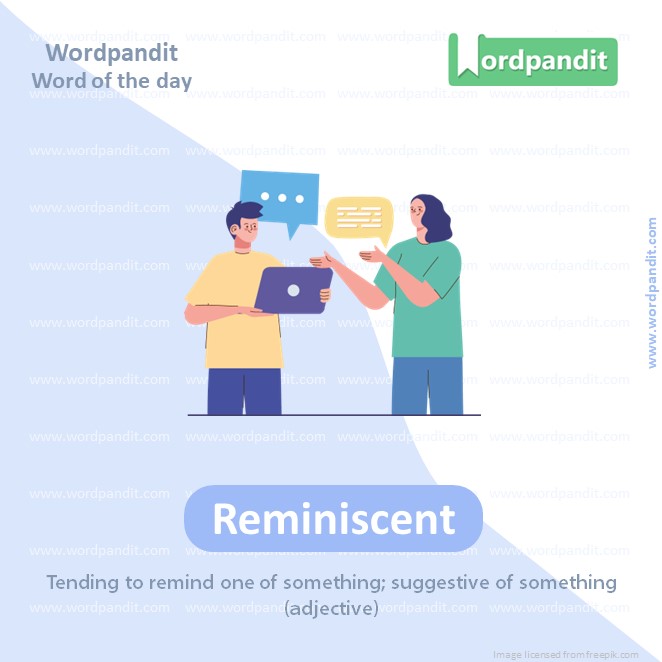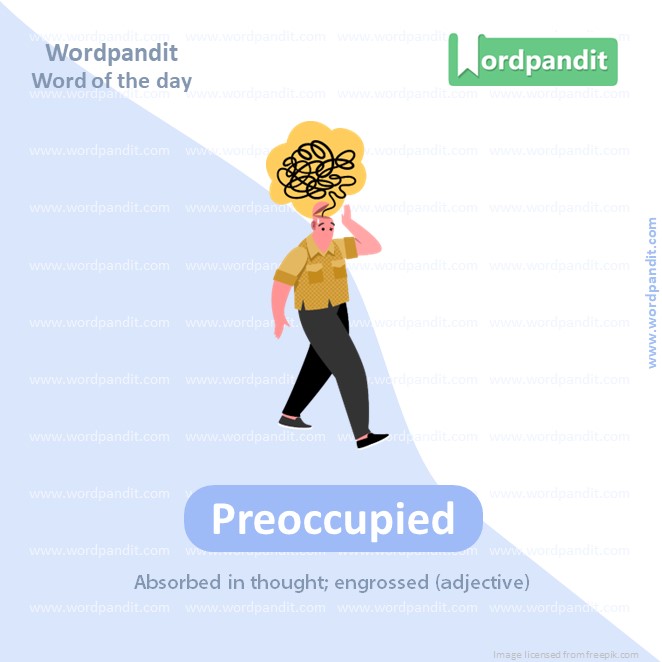Daily Vocabulary from Indian Newspapers and Publications
Welcome to Wordpandit’s Indian Vocabulary Hub
At Wordpandit, we understand the importance of staying rooted in the local context while expanding your language skills. This section focuses on enriching your vocabulary with words and phrases drawn from India’s leading newspapers and publications, ensuring you're learning vocabulary that is practical, relevant, and uniquely Indian.
Why Indian Sources Matter
We believe that the best way to master any language is by immersing yourself in local content. That’s why we carefully curate vocabulary from top Indian publications, including:
- The Hindu
- The Times of India
- The Economic Times
- Hindustan Times
- Live Mint
- The Indian Express
- And many others...
Stay Updated, Stay Relevant
With daily updates from Indian news sources, you’ll be consistently learning words that reflect the trends and shifts in Indian society and culture. Our focus is to provide vocabulary that enhances your understanding of the language in an Indian context.
How Wordpandit Supports Your Goals
Whether you’re preparing for exams, aiming to improve your professional communication, or simply want to stay connected with the latest Indian vocabulary, Wordpandit is here to guide you every step of the way.
Learn with a Practical Approach
Our interactive learning methodology includes real-world examples, engaging activities, and context-specific usage to ensure that every word becomes part of your active vocabulary.
Dive into Indian Vocabulary Today!
Why Choose Wordpandit?
Practical Learning: Focus on words you'll actually encounter in real-world reading, enhancing your comprehension and communication skills.
Diverse Content: From current affairs to scientific breakthroughs, our varied sources expose you to vocabulary across multiple domains.
Effortless Integration: Make Wordpandit a part of your daily routine. Just a few minutes each day can significantly boost your lexicon over time.
Your Path to Vocabulary Mastery
- Visit our Daily Vocabulary section regularly
- Explore new words and their usage in context
- Practice incorporating these words into your own writing and speech
- Track your progress as your vocabulary expands
Start Your Journey Today
Embark on your vocabulary enhancement journey with Wordpandit. By consistently engaging with our daily posts, you'll build a robust vocabulary that serves you well in academic, professional, and personal contexts.
Remember, a word a day keeps linguistic limitations at bay. Make Wordpandit your daily companion in the quest for vocabulary excellence!
WORD-1: Accentuate
Context:
"Caste census could accentuate caste consciousness and caste cleavages." - Indian Express
Explanatory Paragraph:
The word "accentuate" means to make something more noticeable or prominent. When you accentuate something, you're drawing special attention to it. In the context of the caste census, the concern is that it might highlight or emphasize existing social divisions even more, making them harder to ignore or bridge.
Meaning: To make something more noticeable or emphasize it (Verb)
Pronunciation: ak-SEN-choo-ate
Difficulty Level: ⭐⭐☆ Beginner to Intermediate
Etymology: From Latin "accentuatus", meaning "to stress or emphasize", from "ad-" (to) + "centum" (tone).
Prashant Sir's Notes:
Think of "accentuate" as turning up the volume on an idea or feature. It doesn’t create something new—it simply makes what's already there louder or more visible. Very useful for analytical writing!
Synonyms & Antonyms:
Synonyms: emphasize, highlight, underline, spotlight, stress
Antonyms: downplay, diminish, understate, ignore, overlook
Usage Examples:
- The lighting was designed to accentuate the artwork on display.
- His speech accentuated the importance of education in modern society.
- Wearing black can accentuate your silhouette.
- Social media often accentuates personal achievements while hiding struggles.
Cultural Reference:
"Don't accentuate the negative." – A popular line from the classic song *Accentuate the Positive* (1944), encouraging people to focus on good rather than bad.
Think About It:
In what ways does media accentuate certain social issues while ignoring others?
Quick Activity:
Write 3 sentences using the word “accentuate” in different contexts: one social, one artistic, and one personal.
Memory Tip:
Accent + uate = to give something an “accent” or focus. Just like an accent in speech makes a sound stand out, to accentuate something makes it stand out!
Real-World Application:
In design, marketing, and even political speeches, professionals use specific techniques to accentuate key features or messages to influence perception and impact behavior.
WORD-2: Strenuous
Context:
"A five-year assessment of the country’s national clean air programme (NCAP) reveals that strenuous efforts are needed to provide meaningful and lasting gains." - Hindustan Times
Explanatory Paragraph:
The word "strenuous" is used to describe something that requires a lot of effort, energy, or determination. It can refer to physical labor, mental concentration, or even emotional endurance. In this context, the word emphasizes that significantly more intense and focused efforts are necessary to make the clean air program truly successful over the long term.
Meaning: Requiring or using great effort, energy, or exertion (Adjective)
Pronunciation: STREN-yoo-uhs
Difficulty Level: ⭐⭐⭐ Intermediate
Etymology: From Latin "strenuus" meaning "active, brisk, vigorous".
Prashant Sir's Notes:
Think of "strenuous" as a word that carries weight—both literally and metaphorically. Whether it's lifting weights or implementing policy changes, strenuous implies that it’s going to take serious work and persistence.
Synonyms & Antonyms:
Synonyms: vigorous, intense, laborious, demanding, forceful
Antonyms: effortless, easy, mild, relaxed, gentle
Usage Examples:
- The hikers completed a strenuous 10-hour trek through the mountains.
- Preparing for the civil services exam is a strenuous mental exercise.
- Despite his strenuous objections, the plan was approved.
- Cleaning up pollution will require strenuous governmental and public cooperation.
Cultural Reference:
"There is no substitute for hard work." – Thomas Edison. This quote reflects the same spirit conveyed by the word "strenuous"—true achievement requires effort and persistence.
Think About It:
Why do people sometimes avoid strenuous tasks even when the outcomes are beneficial?
Quick Activity:
List 3 strenuous tasks you’ve done recently—one physical, one mental, and one emotional. Describe what made them strenuous.
Memory Tip:
“Strenuous” sounds like “strain on us”—because that’s exactly what it does: puts a strain on your energy and effort!
Real-World Application:
The word is often used in contexts like fitness, policymaking, and crisis management—where real change or improvement demands hard, persistent work and energy.
WORD-3: Prolonged
Context:
"PM2.5 can even cross the blood-brain barrier and be fatal under prolonged exposure." - Hindustan Times
Explanatory Paragraph:
"Prolonged" refers to something that lasts for a long time or continues longer than expected or usual. In the given context, it highlights that continuous or extended exposure to PM2.5 particles (fine particulate matter) can be extremely harmful, even leading to fatal outcomes. The word adds seriousness by emphasizing the duration of exposure as a key risk factor.
Meaning: Continuing for a long time or longer than usual (Adjective)
Pronunciation: pro-LAWNGD
Difficulty Level: ⭐⭐☆ Beginner to Intermediate
Etymology: From Latin "prolongare" — "pro-" (forward) + "longus" (long)
Prashant Sir's Notes:
“Prolonged” is a time word—useful in any context where duration plays a role. In academic writing, especially health, policy, or environmental studies, this word helps you show the impact of something over time. Combine with “exposure”, “conflict”, “delay”, etc.
Synonyms & Antonyms:
Synonyms: extended, sustained, lengthy, drawn-out, enduring
Antonyms: brief, short-lived, temporary, momentary, fleeting
Usage Examples:
- Prolonged stress can have severe effects on both mental and physical health.
- The region experienced a prolonged drought that affected crops and livelihoods.
- The patient’s recovery was delayed due to prolonged exposure to pollutants.
- Negotiations entered a prolonged phase, with neither side willing to compromise.
Cultural Reference:
During the COVID-19 pandemic, many countries experienced prolonged lockdowns, which had a lasting impact on economies, education, and mental health.
Think About It:
Can something negative become normalized if it continues for a prolonged period? What are the risks of such normalization?
Quick Activity:
Write a sentence using “prolonged” to describe a situation involving health, one involving emotion, and one involving conflict.
Memory Tip:
“Prolonged” = “pro” (forward) + “long” — Think of it as something being stretched forward in time, making it long-lasting.
Real-World Application:
In health and environmental sciences, "prolonged" is frequently used to warn about the dangers of long-term exposure—whether to air pollution, stress, or radiation. It’s also relevant in law, policy, and humanitarian discussions.
WORD-4: Reminiscent
Context:
"The atmosphere there was reminiscent of the day before a wedding." - Hindustan Times
Explanatory Paragraph:
The word "reminiscent" describes something that reminds you of something else—usually from the past. It evokes a memory, mood, or feeling associated with a previous experience. In the context above, it means the atmosphere felt similar to the joyful, anticipatory vibe people often experience the day before a wedding.
Meaning: Tending to remind one of something; suggestive of something in the past (Adjective)
Pronunciation: rem-uh-NISS-uhnt
Difficulty Level: ⭐⭐⭐ Intermediate
Etymology: From Latin "reminiscentem", present participle of "reminisci", meaning "to remember."
Prashant Sir's Notes:
“Reminiscent” is a great word for building emotional depth in writing. It adds a nostalgic or reflective tone. Use it when describing moments, scenes, or feelings that echo something meaningful from the past.
Synonyms & Antonyms:
Synonyms: evocative, suggestive, redolent, reflective, nostalgic
Antonyms: forgetful, unmindful, oblivious, dissimilar
Usage Examples:
- The scent of jasmine was reminiscent of summer evenings at her grandmother’s house.
- His music is reminiscent of 90s jazz with a modern twist.
- The film’s aesthetic was reminiscent of classic black-and-white cinema.
- The excitement in the office was reminiscent of a startup’s early days.
Cultural Reference:
In literature and film, many works are described as “reminiscent” of others—like how *Stranger Things* is often called reminiscent of 80s sci-fi and horror culture.
Think About It:
Why do we often find comfort in things that are reminiscent of the past? Does this tendency influence how we make decisions today?
Quick Activity:
Describe a moment or object in your life that is reminiscent of a childhood memory. Use vivid adjectives!
Memory Tip:
“Reminiscent” contains “reminisce”—to think or talk about old times. So if something is reminiscent, it helps you reminisce!
Real-World Application:
Writers, advertisers, and filmmakers often use “reminiscent” elements to create emotional resonance, building a connection between the audience’s past experiences and the present moment.
WORD-5: Preoccupied
Context:
"Half a day has passed in Ayodhya, and upon my return, it is evident that the city is preoccupied with finding its place in this celebratory atmosphere." - Hindustan Times
Explanatory Paragraph:
The word "preoccupied" describes a state of being so absorbed in thought or engaged in an activity that one is unaware or inattentive to other things. It can be used both in a mental or emotional context, and more broadly to describe what dominates someone’s or something’s focus. In the sentence above, the city is deeply engaged or mentally absorbed in adjusting to the mood of celebration, showing how collective focus can reflect a deeper emotional or cultural engagement.
Meaning: Absorbed in thought or deeply engaged with something, often to the exclusion of other concerns (Adjective)
Pronunciation: pree-OK-yoo-pide
Difficulty Level: ⭐⭐☆ Beginner to Intermediate
Etymology: From Latin "praeoccupare" meaning "to seize beforehand", from "prae-" (before) + "occupare" (to occupy)
Prashant Sir's Notes:
“Preoccupied” doesn’t always mean worried—it can also mean deeply immersed in a thought or feeling. Use it when describing someone’s distracted state or when highlighting the main mental/emotional focus in a narrative.
Synonyms & Antonyms:
Synonyms: absorbed, engrossed, distracted, fixated, immersed
Antonyms: attentive, present, alert, focused (on the present), disengaged
Usage Examples:
- She seemed preoccupied during the meeting, barely responding to questions.
- The nation was preoccupied with the ongoing election drama.
- He was too preoccupied with his thoughts to notice the time passing.
- The team was preoccupied with strategy, overlooking the emotional dynamics.
Cultural Reference:
In modern psychology, people are often said to be “preoccupied” with their digital lives, leading to reduced attention in real-world relationships—a theme echoed in many books and films about technology and isolation.
Think About It:
What are you most preoccupied with these days—and is it helping or hindering your growth?
Quick Activity:
Write two sentences: one where a person is preoccupied in a positive way (e.g., with a passion), and one where it causes a problem (e.g., missing something important).
Memory Tip:
“Pre” + “occupied” = already occupied in mind or attention. Picture your brain as a room with a "Do Not Disturb – Already Occupied" sign!
Real-World Application:
Understanding when someone is preoccupied can improve communication—whether in classrooms, workplaces, or personal relationships—by encouraging empathy and timing in discussions.



